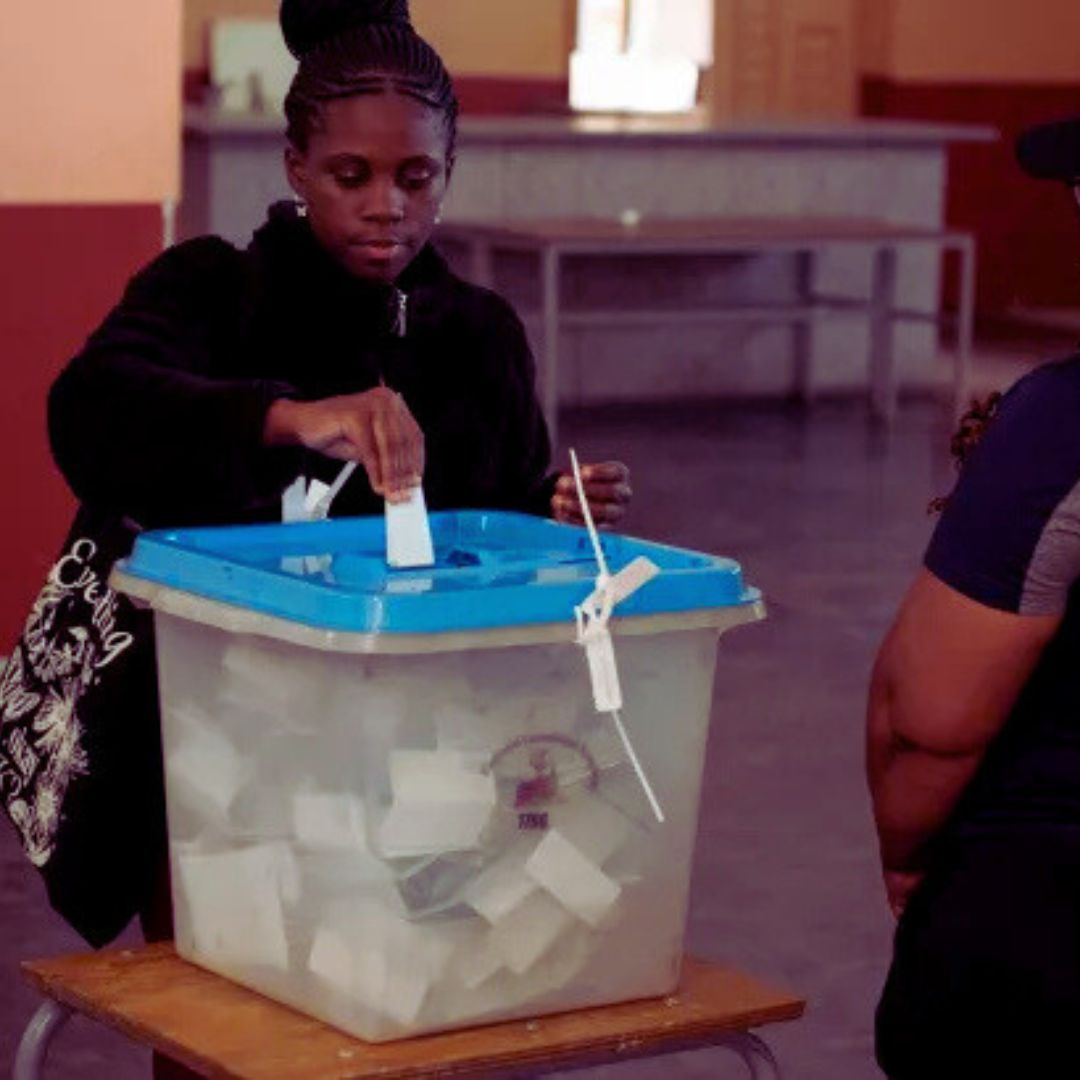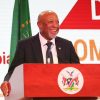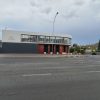Omanyano ovanhu koikundaneki yomalungula kashili paveta, Commisiner Sakaria takunghilile
Veronika Haulenga
Omanyano ovanhu koikundaneki yomalungula kashili paveta, Commisiner Sakaria takunghilile
Veronika Haulenga
Listeners:
Top listeners:
-
play_arrow
Omanyano ovanhu koikundaneki yomalungula kashili paveta, Commisiner Sakaria takunghilile Veronika Haulenga
SADC sees regional decline in support for liberation movements

The Swapo party has retained power in Namibia’s recent elections, but it recorded its weakest performance since independence in 1990. Netumbo Nandi-Ndaitwah has made history as the country’s first female president. Swapo secured 51 of 96 parliamentary seats, garnering 53.4% of the vote—a sharp decline from the 65.5% it achieved in 2019. The party’s reduced majority reflects growing public frustration over unemployment, corruption, and inequality.
The Independent Patriots for Change (IPC), led by Panduleni Itula, emerged as a significant opposition force, winning 20 seats with 20.2% of the vote.
Political analyst Ndumba Kamwanyah highlighted the challenges Swapo faces in restoring public trust.
Audio Player
While Swapo veteran and former ambassador Tuliameni Kalomoh called for the ruling party to adopt a new approach to governance.
Audio Player
Regional Trends in Declining Liberation Movements
Professor Ntsikelelo Breakfast, head of the Center for Security, Peace, and Conflict Resolution at Nelson Mandela University, noted that Swapo’s electoral decline is part of a broader regional trend of waning support for liberation movements in Southern Africa. He pointed to similar patterns in countries like South Africa, Mozambique, and Zimbabwe, where former liberation movements are losing ground due to dissatisfaction with governance and socio-economic challenges.
Breakfast emphasized that election credibility hinges on the entire process, not just the voting day. He remarked on concerns raised by opposition parties about Namibia’s electoral logistics, including the availability of ballot papers and overall election management by the Electoral Commission of Namibia (ECN).
Audio Player
Opposition Gains and Parliamentary Dynamics
Opposition parties have made significant inroads, reducing Swapo’s dominance in parliament. While Swapo still holds a majority, the growing influence of opposition parties could impact legislative processes.
The Affirmative Repositioning Movement, one of the opposition groups, boycotted the announcement of election results, underscoring tensions in the political landscape. Observers, including the African Union, have declared the elections free and fair but urged the ECN to address logistical issues before the upcoming inauguration.
With liberation movements across the region facing a decline, experts suggest that Swapo’s grip on power may weaken further in future electoral cycles.
Written by: Tonata Kadhila
corruption Democracy Election Results Electoral Commission of Namibia First Female President Independent Patriots for Change. liberation movements Namibia elections 2024 Netumbo Nandi-Ndaitwah Ntsikelelo Breakfast panduleni itula Parliament Politics Southern Africa SWAPO Party unemployment
Similar posts
Windhoek Weather
Most popular

Mbumba signs off new benefits for retired political office bearers

Former FNB employee arrested after defraud pensioner off N$215, 000

Namdia Heist: More questions, lots of confusion

Omuhwahwameki Michael okuunganeka oshikonga shoku patitha oostola dho Rani moshilongo ashihe.

Windhoek woman loses N$60,000 to fraudsters
Copyright 2025 Future Media (Pty) Ltd | Website by Digital Platforms
Tel: +264 83 000 1000 | Email: news@futuremedia.com.na





